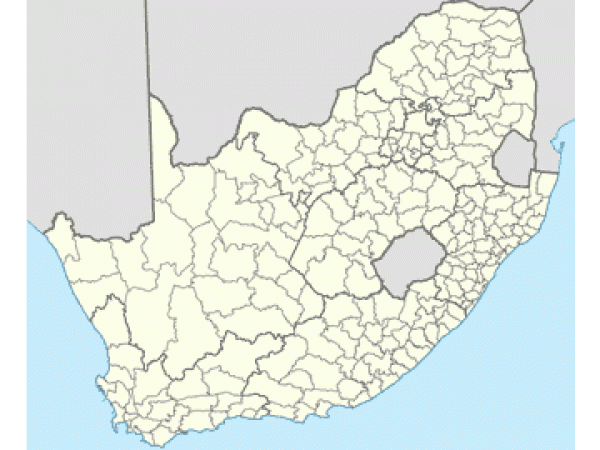

South African municipalities (2011). By Htonl [Public domain], via Wikimedia Commons.
14 January 2014
The elections this year will be for our provincial and national governments. But it is our local government, our mayors and ward councillors, who are responsible for much of the service delivery that affects our day-to-day lives, such as refuse collection, sanitation and day clinics.
What steps can you take to improve service delivery in your area? What can you do to improve local government accountability?
First you need to understand how local government works. An excellent resource for understanding local government is The Local Government Handbook.
The main government political structure for cities is the metropolitan municipality. The political structure of the municipality includes the mayor and a Council. But politicians make policy; they do not do the day-to-day implementation. This is the job of the municipality’s staff, headed by a Municipal Manager. For example, according to the The Local Government Handbook, the City of Cape Town Metropolitan Municipality is an area of 2,440km2 (see the map below). It’s headed by Mayor Patricia De Lille. She leads a Council made up of over 200 elected ward councillors. But the Administrative Head of the City is the Municipal Manager, Mr Achmat Ebrahim.

City of Cape Town Metropolitan Municipality. Source: The Local Government Handbook.
Outside the major cities, the equivalent of the metropolitan municipality is called the district municipality. The Western Cape, for example, has five district municipalities. Gauteng only has two, but Kwazulu-Natal has ten. These too are headed by a mayor and council. They also have municipal managers.
Local government is responsible for a lot of things that affect our daily lives:
Source: Education & Training Unit.
Municipalities are made up of wards. These are made up of communities and neighbourhoods. If you don’t know which ward your community is in, find out here.
Each ward has an elected ward councillor, who is responsible for representing your immediate needs and taking decisions on your behalf. The ward councillor must work in a transparent and accountable way to serve the public. The councillor is the link between communities and local government. If the municipality is ignoring the needs of your community, then it is the responsibility of your councillor to bring community needs to the attention of the city council
To contact or find out more about your community’s ward councillor, visit the City of Cape Town website, go to the councils section, and type in your suburb or neighbourhood. Their phone numbers and addresses are available here
Making contact with your ward councilor to address your community concerns is something you’re entitled to do, and it is the councillor’s responsibility to respond
Mobilitate is a website that works to build communities by helping them connect, collaborate, and organize to make for a more transparent, effective, and accountable government. You can also find your councillor and communicate with them via Mobilitate.
Ward committees are made up of up to ten residents from your community. It is important that they keep independent of political party interests. The 1998 Municipal Systems Act describes the function of ward committees as: “The object of a ward committee is to enhance participatory democracy in local government”.
The ward councillor chairs the meetings of the ward committee. According to the Department of Local Government Handbook for Ward Committees, a ward committee should be involved in the municipal annual budget, council projects, community campaigns, and the Integrated Development Plan (IDP) process. These official sounding things have an effect on where you live, and they are supposed to increase the participation of residents in municipal decision making.
According to the South African Social Attitudes Survey (SASAS) only half of respondents in the ‘no-income’ category knew of their ward committees.
Ward committee representatives are responsible for holding the ward councillor accountable and for providing the councillor with valuable local information. If you have no contact with ward committee members in your community, contact your ward councillor to find out who they are.
The IDP is produced by municipalities every five years. The plan should provides goals and guidelines for development and allocate budget priorities.. Have a look at Cape Towns’ 2007/8-2011/12 IDP.
You are encouraged to comment on the City’s budget and IDP draft for 2013/14.
CPFs are community groups that work with the local police. They are supposed to help provide better crime prevention in communities and hold the police service accountable. Find out more about your local CPF and get involved. This webpage offers an easy way to find your nearest CPF:
There are several ways. Contact your ward councillor and suggest how he or she can fix problems in your area, or improve your area. But you can do more. You could join or assist your ward committee or Community Policing Forum (CPF). You can also become involved with the Integrated Development Plan (IDP) process. Read the plan for your municipality and comment on it.
It is a your constitutional right to participate in governance. Section 152 of the South African Constitution says that local government must “encourage the involvement of communities and community organisations in matters of local government”. Ward committees, Community Policing Forums, and IDPs are your opportunity to do so. It is important for you and your community to participate in local government to improve service delivery.